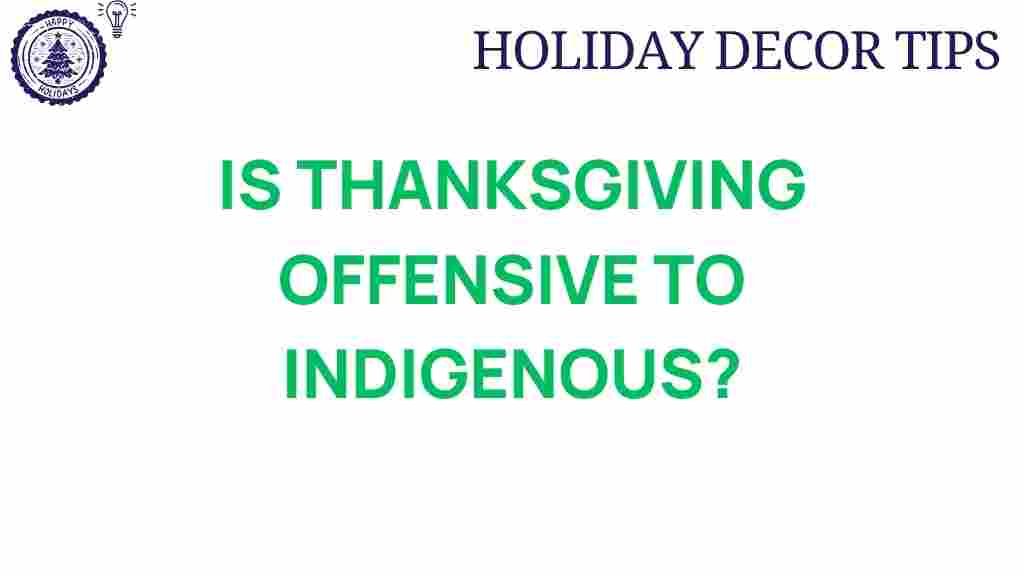Thanksgiving’s Hidden History: Unpacking Its Impact on Indigenous Communities
Thanksgiving is often celebrated as a time for family gatherings, feasting, and expressing gratitude. However, beneath the surface of this cherished holiday lies a history that many may not fully understand. This article will delve into Thanksgiving’s hidden history, focusing on its impact on Indigenous communities. By unpacking this narrative, we can foster a more inclusive understanding of Thanksgiving and its significance.
The Origins of Thanksgiving
The story of Thanksgiving typically begins in 1621 when the Pilgrims and the Wampanoag tribe shared a harvest feast. However, this simplistic narrative glosses over the complexities of the interactions between these two groups and the broader implications for Indigenous peoples.
- The Pilgrims’ Arrival: The Pilgrims arrived on the Mayflower in 1620, seeking religious freedom in the New World.
- First Contact: Upon their arrival, the Pilgrims encountered various Indigenous tribes, including the Wampanoag.
- The Feast: The 1621 harvest celebration was a three-day event that included both Pilgrims and Wampanoag members.
While this story is celebrated, it is essential to recognize that it represents just a moment in a much larger and more complicated history.
The Impact on Indigenous Communities
Thanksgiving, as a concept and holiday, has had far-reaching effects on Indigenous communities across North America. Here are some of the significant impacts:
- Displacement: The arrival of European settlers led to widespread displacement of Indigenous peoples from their ancestral lands.
- Loss of Culture: Colonization resulted in the suppression of Indigenous cultures, beliefs, and languages.
- Conflicts and Violence: Many Indigenous tribes faced violence and conflict as settlers expanded their territories.
Understanding the Broader Narrative
To fully grasp the implications of Thanksgiving, one must consider the broader narrative of colonization and its effects on Indigenous peoples. This includes recognizing the ongoing struggles faced by these communities today.
Colonization and Its Consequences
The arrival of European settlers marked the beginning of a long history of colonization, which had devastating effects on Indigenous populations:
- Decimation of Populations: Diseases brought by Europeans decimated Indigenous populations, sometimes by as much as 90%.
- Land Treaties: Many treaties were signed under duress or misrepresentation, leading to further loss of land and resources.
- Cultural Erasure: Assimilation policies aimed at erasing Indigenous cultures included boarding schools and bans on traditional practices.
Modern Perspectives on Thanksgiving
In contemporary society, many Indigenous people observe Thanksgiving differently. For some, it is a day of mourning rather than celebration. Understanding these perspectives can help foster a more respectful and inclusive approach to this holiday.
- National Day of Mourning: Many Indigenous groups observe this day as a time to reflect on the impact of colonization.
- Educational Initiatives: Numerous organizations work to educate the public about the history and ongoing issues faced by Indigenous communities.
- Community Celebrations: Some Indigenous people choose to celebrate with community gatherings that honor their heritage and culture.
How to Celebrate Thanksgiving Mindfully
For those wishing to celebrate Thanksgiving in a more mindful and respectful way, consider the following steps:
- Educate Yourself: Learn about the history of Thanksgiving and its impact on Indigenous communities.
- Support Indigenous Businesses: Consider purchasing food and goods from Indigenous-owned businesses.
- Engage in Dialogue: Have conversations with family and friends about the true history of Thanksgiving.
- Participate in Local Events: Attend events that honor Indigenous cultures and histories.
Troubleshooting Common Misunderstandings
As discussions about Thanksgiving and its history evolve, misunderstandings can arise. Here are some common misconceptions and how to address them:
- Misconception: Thanksgiving is a purely positive celebration.
- Correction: Acknowledge the complexities of the holiday, including its origins and impact on Indigenous peoples.
- Misconception: All Indigenous people share the same views on Thanksgiving.
- Correction: Recognize the diversity of Indigenous perspectives and experiences.
Further Resources
If you want to delve deeper into Thanksgiving and its impact on Indigenous communities, consider exploring the following resources:
Conclusion
Thanksgiving’s hidden history reveals a narrative that is often overlooked in mainstream celebrations. By unpacking its impact on Indigenous communities, we can cultivate a more nuanced understanding of this holiday. It is essential to recognize the struggles and resilience of Indigenous peoples and to celebrate in a way that honors their histories and cultures. With education and respect, we can transform Thanksgiving into a time for genuine gratitude and reflection.
This article is in the category Themes and created by HolidayDecorTips Team
